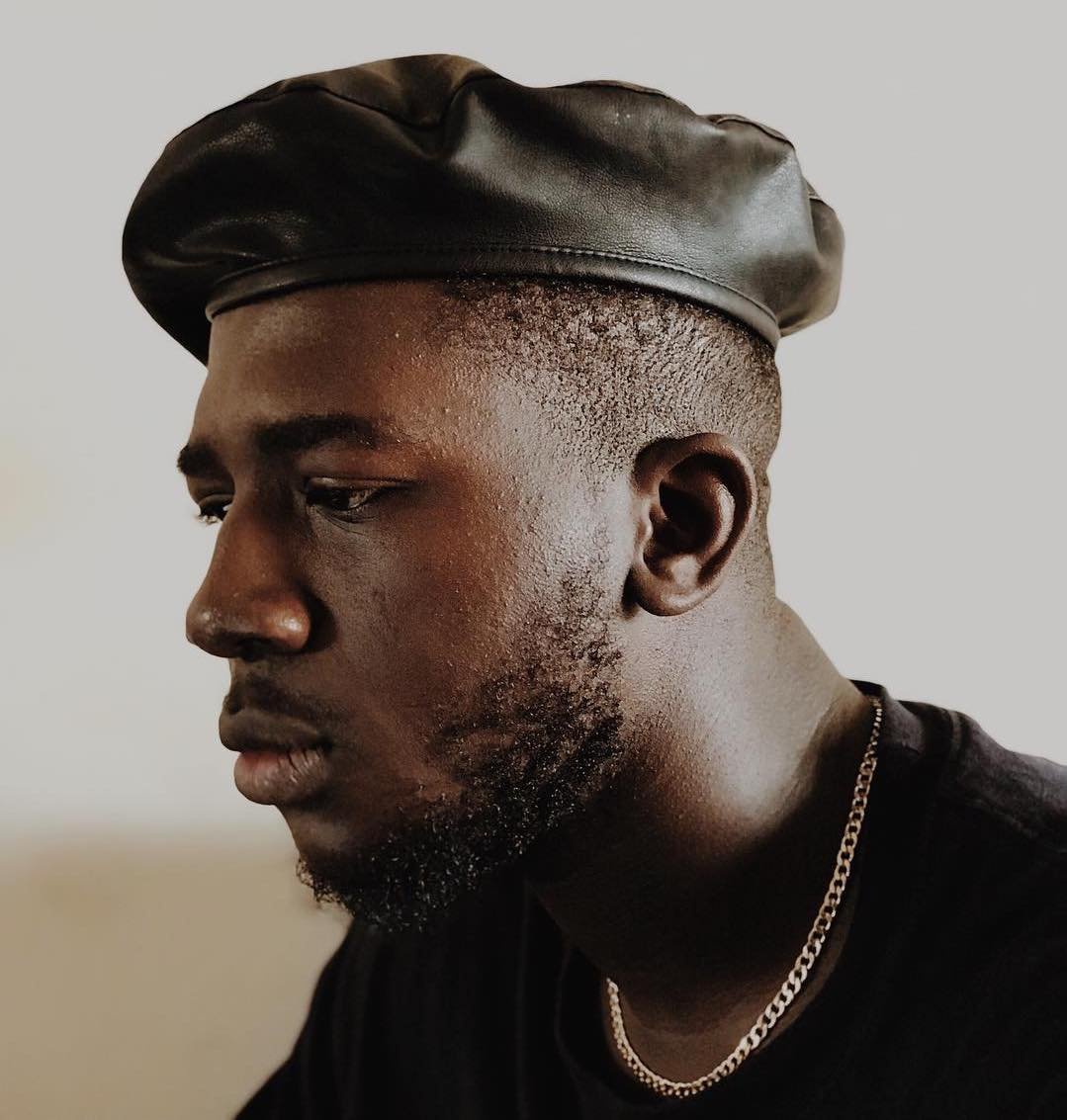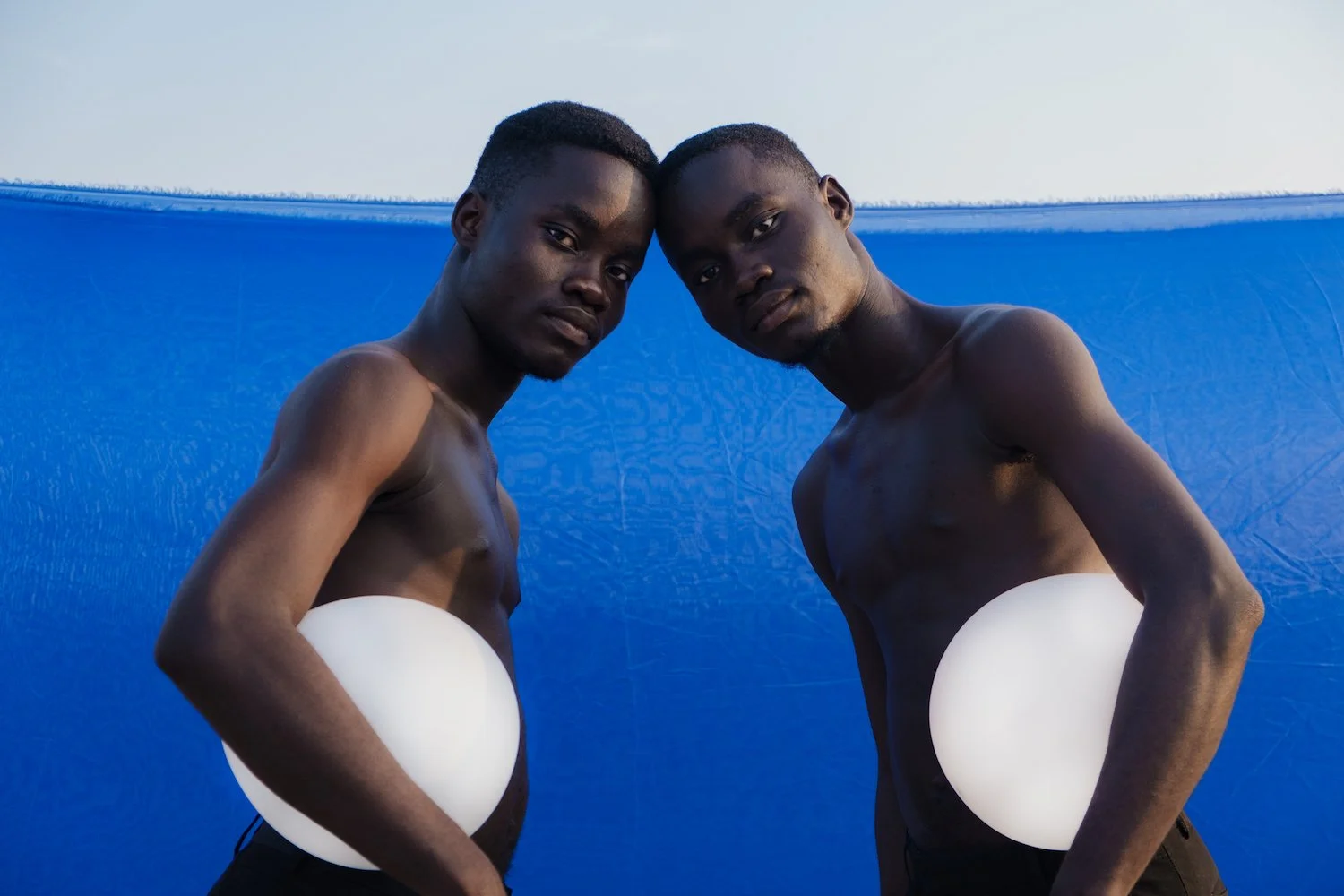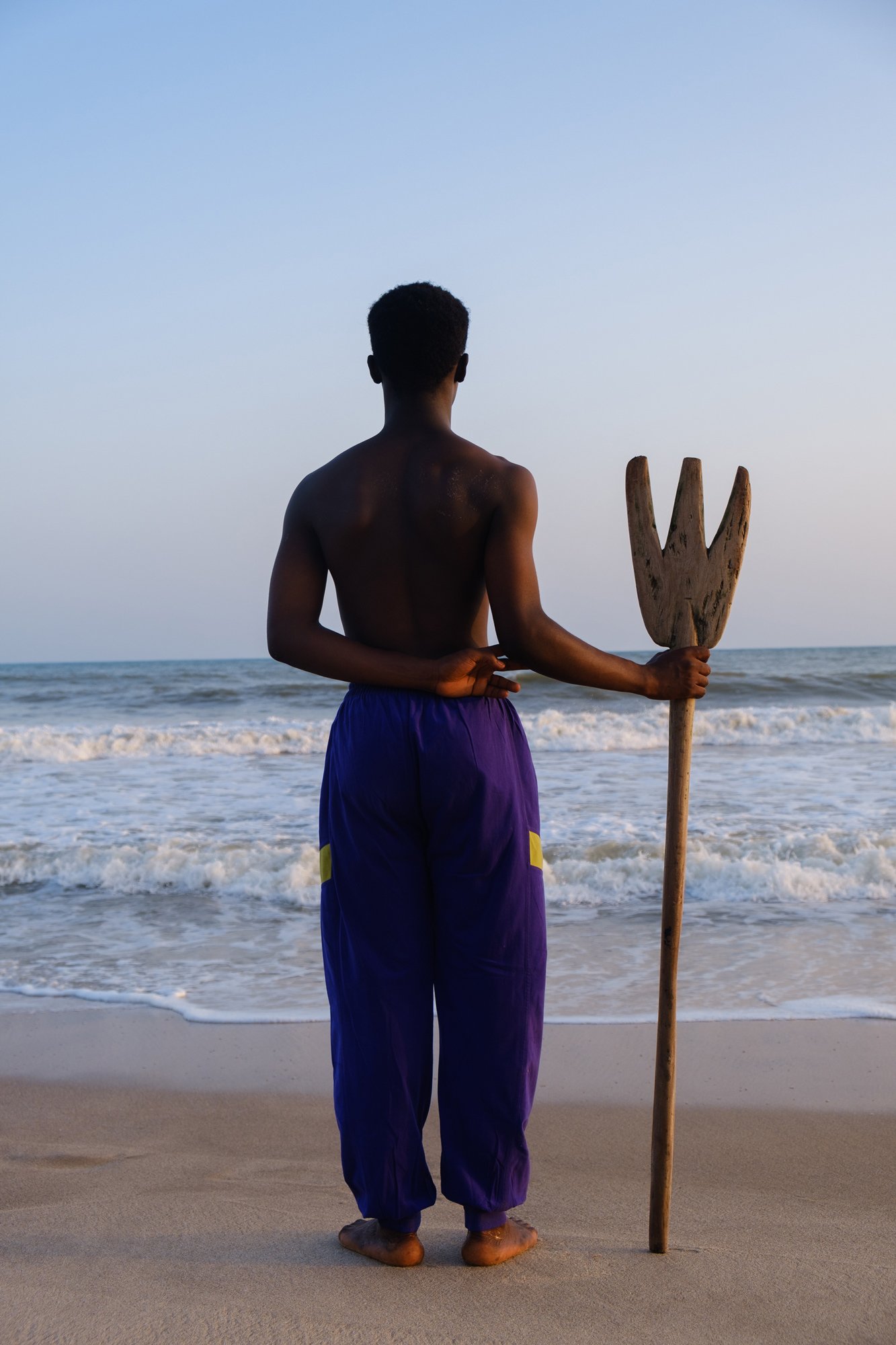Prince Cartiee, Photographer
Prince Baffour-Asare is a Ghanaian photographer. Drawing inspiration from his vibrant culture, Prince elegantly captures a modern-day take on Afro-Surrealism in his bold and vivid body of work. He was born and raised in Accra in a suburban mountainous area called McCarthy Hills. From a young age he was into arts, music, cinematic films, green hills & the beach. He also loved drawing and making caricatures and comics, so he decided to study arts, but switched to IT (Information Technology) when he went to uni. It wasn't necessarily because his parents didn't want him to pursue art by default, but they thought that he should always have a solid plan B. But here we are, back to the art scene again.
Where did your creative journey start?
So, what happened is that I built an art vibe around me in the later years of high school with my very good friend called Prince, he makes wonderful art pieces as well as Ezekiel. We became a collective, we started getting more expressive with arts and literature. So we were using literature as a tool to make poetry, the art form that is more relatable.
The funny thing that happened when I was about to finish high school, I had to do a personal project that entailed expressing something I learned. You had to choose between graphic design and painting. And with graphic design, you had to do a personal calendar. And as I wasn’t familiar with DSRL, I just used my phone to take pictures. And they came out so clear and vivid; much more than the ones we took with the camera. So that was what propelled me to get more interested in photography.
Can you describe your creative process? Do you create a mood board and do location scouting before a photoshoot?
The first thing I do is observe my environment; it plays a huge role in my images. I tried doing pictures both in the studio and outside in natural light. And It felt like the outdoor images made more sense to me. It takes me out of my comfort zone. I am usually shooting in the afternoon, from around 3 pm to sunset. I tend not to make mood boards, especially for my personal works. Walking around a location creates an idea that I find difficult to put together or pen down. I make sure I get the subject and then make the magic happen through the snapshots.
“I tend to make an image, first of all, magical and, second of all, mine. Something that identifies me as an artist.”
I get a lot of inspiration from Tumblr and other photographers from the past and present and think to myself, I can do this. At the end of the day, I am trying to make it more Ghanaian and more me, where it's more of my environment and the people in it.
And the last thing is color therapy, a study of colors and how you could portray them in your art. I am generally surrounded by colorful backgrounds, like the walls in the neighbourhoods of Accra. People in unintentional colorful clothing, and school uniforms in different styles & colors, there is so much to pick & work with.“As I live in a very suburban neighborhood, it’s quite mountainous. In the Southern part, the sea and river meet together. I’ve used that space as my studio, where when the season changes, I get a different perspective on the landscape of the place.”
The sky, trees, and nature also make me sit for a minute and pull the whole thing in a whimsical form. You have to understand colors and how it plays a significant role in human emotions.How does Ghanaian culture affect your work?
That’s the thing; it’s not intentional. I used to be unaware until I had to sit back and understand what colors reflected in Africa, and it wasn't even about my environment; it was our culture, it was about our Kings and Queens wearing gold and colorful fabrics. The most popular one is called kente, a very colorful woven fabric. People want to look sharp, be identified, and be glorified; you know it puts their confidence on a whole different level when they step out. It’s a Ghanaian thing; it comes from our ancestors. This defines us. I started appreciating my culture more through taking photographs, I understood our mannerisms and our way of life.Can you tell me a bit about the creative scene in Ghana?
It’s always been vibes and it keeps growing more & more. It’s very youthful. Ghana has always been an enshrined creative hub in West Africa, through our music, fashion & movies. I think the foundation did not get enough support or uplift and most people will agree with me. There are still problems that need to be solved. Our art scene is unintentionally creative because we haven’t been tapped into that pile. There photo and art scene is emerging, we have many art galleries like ADA \ contemporary art gallery, Gallery 1957, and Nubuke Foundation.It’s the new pop culture/ vibe now and I’m loving it. I hope we can make it a vibrant industry.
Can you describe your photography style? I see some influences of surrealism; is that what you’re leaning towards?
When I decided to do this full-time, I had to make a statement, and (afro)-surrealism felt like one of the concepts of making it possible because surrealism works with emotions, and it works more abstract. So you need to find the right tone, the right color. And every color has a meaning; it makes you feel a certain way, and I’m working a lot on how color in my images can reflect people’s emotions. What kind of gear do you mostly use?
I'm so in love with the Fujifilm X-T3; it’s one of my babies. When I hold that camera, I think it’s designed for me. I’ve never fallen in love with such a gadget, apart from PlayStation (laughs).Fujifilm understands the color science, and that there's been this conversation about how the melanin skin has been depicted on cameras. Other cameras don’t do it for me, but with Fuji, it’s beautiful. I can set the temperature, the warmth, and the color how I want it. I can even set it up to make it look like a film (analog). I also have Sony A7 III, which I use if I want more sharpness and depth. How do you edit your photos?
I don’t have an editing process or pre-sets, as I already can set the settings how I want them with Fuji. So after I just do a few tweaks and I add more contrast to my work or make it more vibrant.Do you believe you can teach yourself how to take good photos, or do you need to follow a proper study? Can you learn by practicing?
Practising is essential; you need to figure out how to use a camera. I watched YouTube videos to understand how these cameras work. You should know the basics, the ISO, and the shutter speeds. The basics are really important, and you get to know what camera works for you. Experiment with cameras and lenses. Whether you want to try landscape or portrait photography, you should be knowledgeable about these things. Also, be ambitious and consistent with image processing. But at the end of the day, if you don't have the eye that makes captivating images, it will still look dull. It’s about envisioning what you want to create. If you have that vision, it will be easier to go in that certain direction. And it will take you beyond even photographing. Can you tell me about the project that you are most proud of?
Sundaze – I think it's one of my strongest art pieces because It strikes a lot of people. But my personal favorite has to be Fabricated Dreams. It has a story behind it; the fabric wrapped around the guy has a meaning – I wanted to express how the fabric has more artistry with wind and how it takes people on a journey, like a flying carpet. How do you stay focused and disciplined?
I grew up with an everyday spirit of making things happen. The feeling of waking up to do something you need to do, whether it’s art or just finding yourself, basically to make the day worthwhile. And I’m saying this for the young people; if you want to pursue a creative career, you still might need to do a degree or a second job next to it. It will keep you going because you know that you have to go to school, but you’ll have a shoot after school, for example. “You also have to be in an environment where art is appreciated. The only challenge is if your environment does not support what you do. You need to then prove them wrong by doing it right by yourself.”
It’s funny how now this whole NFT metaverse is becoming a community, but in reality, we’re living it. You need to create a certain circle, and space, that understands what you do. What are you working on right now?
There are two personal projects I’m working on right now. The first one is still untitled; it is related to color therapy, where I’m exploring color and making the subject speak much more than its environment or the other way around. The second project is ‘Backstories,’ where hopefully I can make a book out of it – it’s a little bit contemporary art form. You will question why this is photographed this way like I’m taking you on a journey. That has more to do with the subject’s environment and body language. ‘Backstories’ is my never-ending journey.Which clients have you worked for?
I worked for Daily Paper, Condé Nast, Kwesi Arthur, La Même Gang, Okay Africa, Team Retro, and Vsco and a few creatives in Ghana.How do you get commercial assignments and projects?
Through social media & recommendations from people. Also, I recently signed a with Visionary Agency based in Amsterdam. They showcase my works and make brands aware that they also have photographers in Ghana when brands come to work, document, or shoot collections. For a creative project, it’s a bit scruffy here. So the business side of it has never been cemented. Upcoming projects?
Looking forward to having exhibitions in Ghana and in different places in the world. Not necessarily galleries but spaces like pop-ups or parties.What are your final words of wisdom for upcoming artists?
First and foremost, do not ever see yourself as an upcoming artist; you are an artist. It’s okay to be naïve, it’s fine when you come into the room and you don’t know much – it’s about your curiosity to learn more. You’ll always be your own critic when it comes to your work, but just understand you are an artist; whether you become famous or make money from it or not, you are shaping the creative world.













